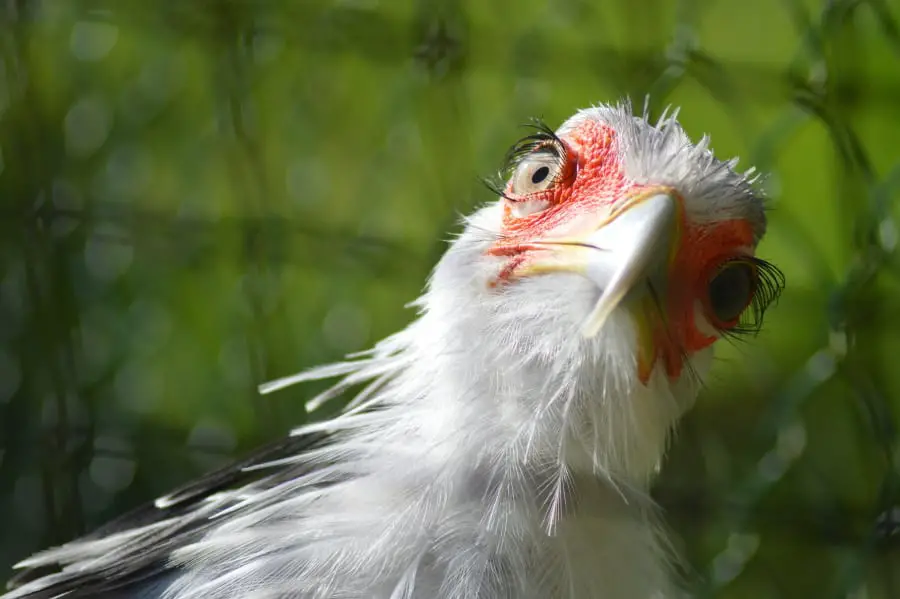
Nature is amazing and performs some miraculous tricks. When it comes to reproduction, things can get strange in a hurry. Hybridization between ducks and chickens, while biologically possible, is a rare occurrence. The results of such hybridization produce unpredictable results. There are documented cases of duck and chicken hybrids, but none that produced viable hybrid varieties.
Can a duck and a chicken mate? No. There are no scientifically documented cases of duck/chicken hybrids. Duck and chicken differences make a duck/chicken hybrid rare.
- Male ducks have external sex organs
- Hens internal sex organs are not designed to be penetrated
- Mating rituals of ducks and chickens differ
The thought of a chicken paddling peacefully around the farm pond is interesting. Unfortunately, in the reality of science and nature, that situation is impossible. Chickens and ducks share a lot of similar traits. They have feathers, and they lay eggs. However, there are fundamental differences in duck and chicken biology and physiology that make a successful cross an unlikely event.
Can a Duck Fertilize a Chicken Egg?
From a strictly biological standpoint, duck sperm can fertilize a chicken egg. Ducks and chickens are closely enough related on the evolutionary tree to make it possible. However, the chance of the resulting hybrid being viable is very low. The chances of the actual fertilization happening are low as well due to the difference in chicken and duck anatomy.
It’s the Differences that Count
The biggest barrier to a male duck, a drake, mating successfully with a female chicken, a hen, is the structural differences in their anatomy. This works the other direction as well, making it almost impossible for a male chicken, a rooster, to mate with a female duck, a hen.
Drake Anatomy
Drakes have one physical feature that is the key to understanding why drake/hen hybrids are nearly impossible. Drakes are equipped with an external sex organ that is used to penetrate the duck hen deep enough to fertilize her eggs. There are several consequences usually associated with a drake trying to mate with a chicken hen.
- Chicken hens are not meant to be penetrated. The chicken hen usually suffers a prolapse after being mated by a drake which results in the death of the chicken hen
- Ducks are physically larger than chickens. The size difference can injure a chicken hen badly enough that the hen must be destroyed or dies.
- Ducks, by nature, are more forceful and violent during mating. Drakes usually make numerous attempts to mate the same hen. Chicken hens rarely survive these encounters.
How About a Rooster and a Duck Hen?
Again, next to impossible. Nature creates some pretty good barriers to the hybridization of roosters and duck hens. The differences in the reproductive anatomy of roosters and duck hens make the chance of a rooster fertilizing a duck hens’ eggs very low. The mechanics just don’t work.
It’s What’s Missing that Matters
Rooster anatomy is the issue. Rooster lack any external sex organs. Both chicken hens and roosters have an external orifice called a cloaca. To transfer sperm to a hen, the rooster needs to touch his cloaca to the cloaca of the hen. The term for this act is a ‘cloacal kiss.’
Duck hens require that the sperm from the drake be injected deeper into the duck hen using a phallic organ. The rooster, lacking a phallus, cannot make the transfer of sperm deep enough into the duck hen.
So, physical differences in the physiology and anatomy of ducks and chickens are the biggest barrier to a duck and chicken hybrid. Size differences between the two species can be another barrier, as are the mating rituals of both.
But What if it Does Happen?
A quick google search returns numerous anecdotal accounts of duck/chicken hybrids. These reports come from around the world, and they all share one interesting fact. None of these reports have been verified scientifically. No laboratory testing of DNA has ever been performed to determine if what is reported is a true hybrid or a genetic mutation.
In those places where it does appear that a true duck/chicken hybrid has resulted, there are several common outcomes.
- The resulting duck/chicken hybrid is sterile and cannot reproduce.
- The eggs of the chicken/duck hybrid are inedible and often will burst soon after they are laid.
- The duck/chicken hybrids don’t run true. These hybrids display a wide variety of characteristics.
- The duck/chicken hybrids are usually physically weak and don’t live long.
Without further structured research that includes genetic testing, it is almost impossible to determine whether these are duck/chicken hybrids or nothing more than a genetic mistake.
Are Chicken and Duck Eggs the Same?
Chicken eggs and duck eggs are almost exactly alike in structure. Duck and chicken hens produce eggs in the same manner. It is an interesting and complicated operation that happens in steps inside the hen.
- The yolk of the egg is produced in the ovary of the hen.
- Once the yolk is ready, it is passed to the infundibulum where it is fertilized.
- After fertilization, the yolk passes to the magnum and then to the Isthmus for the shell membrane to be added
- In the shell gland, the shell itself is built around the yolk before being laid
Nutritionally duck eggs have almost twice the nutritional value of chicken eggs. Duck eggs tend to stay fresher longer because they have thicker shells.
The Nutrition Facts
| Chicken Eggs | Duck Eggs | |
| Calories | 71 | 130 |
| Total Fat | 5g | 10g |
| Cholesterol | 211mg | 619mg |
| Sodium | 70mg | 102mg |
| Total Carbohydrate | 0g | 1g |
| Protein | 6g | 9g |
Can Ducks and Chickens be Raised Together?
Many farmers and urban gardeners successfully raise ducks and chickens together. Keeping the flocks happy and productive does require a bit of understanding of the difference in the way chickens and ducks want their habitat.
- Ducks like water. To keep them satisfied, they need a place to splash and throw water around.
- Chickens like to be warm and dry. While chickens need water to drink, their feathers are not water-resistant like ducks, and getting wet can be a disaster for your chicken flock.
- Ducks nest and chickens roost. Ducks prefer to nest on the ground. Your coop must provide enough space to allow your duck flock to nest on the floor. Chickens prefer to perch on roosts above the ground.
- Roosters and drakes may become aggressive toward each other if kept together.
- Fortunately, ducks and chickens do well on the same sorts of feed. Raising ducklings and chicks should be done in unmedicated food to prevent the gluttonous ducklings from ingesting too much of the medication. You can read more about feeding chickens and ducks the same feed here.
Can it Actually Happen?
Nothing is impossible and absolute statements are the easiest way to find yourself in a predicament. Is it possible? Yes, it is possible. Does it happen with any regularity or without outside help? Probably not. Anecdotal evidence notwithstanding, there is not any scientific evidence that a chicken/duck hybrid is possible. A look at any farmyard where ducks and chickens are raised together gives reliable data.
If chickens and ducks could reliably and easily hybridize, these farmyards would be populated with plenty of examples. Those who raise chickens and ducks consistently, when asked, report that hybridization of ducks and chickens just doesn’t happen.

